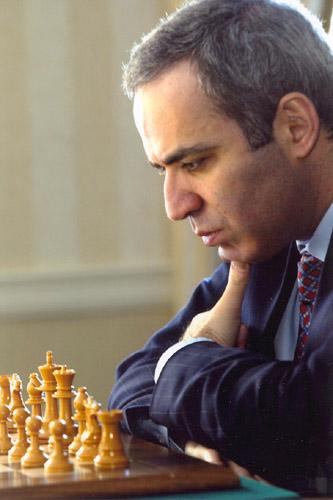
How to Analyze Your Games
Albert Einstein was once quoted for stating the idea that one cannot make the same mistakes and expect different results. In order to become a better chess player, it is vital for you to analyze your past games, and learn from your past mistakes. Sometimes an idea may have worked, and should thus be repeated in the future. Other times, it is important to re-evaluate a former idea, and modify it for future use. Regardless, analyzing your past games can indicate to you where you need to focus to improve in the future.
Most people analyze their games briefly, merely focusing on the one mistake that caused their downfall in the game, and then moving on to the next game. However, it is paramount that you instead dissect the game, and break it down for future use. There are many ways to go about doing this, however, I recommend doing so in a systematic way.
1) Find your opening mistakes. You may have not made any, and it might have been your opponent that misstepped. However, make sure you understand the best way to go about refuting this misstep for future reference. You would be surprised at the number of people who often make a similar mistake in similar positions.
2) Target your strategic flaws. After the opening, it is important to develop a plan, and seek to implement this plan. Write down what your plan was, and see if you were able to implement it. What stopped you? Did you ignore your opponent's plan? The strategic part of the game is often very significant in determining who obtains an advantage. I would suggest studying games of strong players in similar positions to understand how best to play in the future.
3) Drill your tactical flaws. You may have not had any, but if you did it is paramount to avoid making the same mistakes. Stop blaming time pressure for tactical mistakes. GMs and IMs can still maintain a high quality of play even at this point. I would suggest finding what type of tactical mistakes you made, and drilling that particular type of tactic to perfection. An excellent software for doing this is CT-ART (the newest one preferably).
4) Understand your endgame weaknesses. There are many great endgame resources out there, among the best are chesstempo.com and Dvoretsky's Endgame Manual. What kind of endgame did you get into? Rook and pawn, queen and pawn, two pieces versus rook? There are many resources to drill such types of endgames to strengthen your weaknesses in this regard.
I have provided an example of one of my own games that I played online (Yes, I lost). It was an incredible learning experience, and even though time played a major factor in my defeat, I was able to learn a significant amount from my weaknesses in this game.
There is obviously much more you can do to correct your past mistakes, however, I strongly suggest you start off by sticking to the system I have recommended. Get into the habit of doing these 4 things, and slowly build off from there. As you can see, analyzing your games is not a trivial process, and normally analyzing each game should take between 1-3 hours for the maximum benefit.
